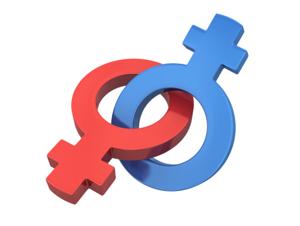Carly Fiorina Blames The Pay Gap On The Things That Actually Help Close It

Carly Fiorina, who announced her campaign for presidency on Monday, is positioning herself as the female alternative to Hillary Clinton. The gender wage gap is one issue looming large for many American women, considering they make 78 percent of what men do even when working full time.
Unlike many of the other potential Republican contenders, Fiorina believes “women don’t always get compensated fairly and that we can do more.” But what she suggests is getting rid of seniority systems “that reward employees for time in grade, not for merit, performance or hard work.” She sees the main culprits of these systems as “[u]nions, government bureaucracies.”
Yet women who belong to a union and/or work for a government bureaucracy are the best off when it comes to equal pay. The wage gap for unionized women is 40 percent smaller for non-unionized women — they make nearly 90 percent of what their male peers do, not parity but much closer. Perhaps more importantly, the wage gap has been shrinking among unionized workers, while the overall gap hasn’t budged in a decade.
The same thing is true for federal employees. Among that workforce, the gap is just 13 percent, a sharp decline from 30 percent a decade earlier.
Why might these groups have a smaller gap? One big reason may be the very compensation systems that Fiorina wants to dismantle. Unionized and public sector workers tend to work in an environment of pay transparency — just 18 percent of women who work for the government are told they can’t discuss pay at work, compared to about 60 percent of private sector workers. Women who don’t know what their coworkers make have few ways of finding out whether they’re being unfairly paid less.
And the pay structures tend to be somewhat rigidly assigned to particular roles. While Fiorina seems concerned that this disadvantages women — perhaps because a system based on seniority will ding a woman who takes time out of the workforce to care for a family member — it can aid them because it does away with a negotiating system that rewards men. Women are penalized for asking for more pay, and if they do it anyway, men still end up with an advantage before negotiations even begin and end up getting further ahead. Not all of the gender wage gap is due to bias, but economists have consistently found a portion they can’t explain by other factors, and seniority systems can help fight against bias that might crop up in more subjective systems based on perceived merit or performance.
What Fiorina doesn’t want to see is “increased regulation,” and she claims that “we have laws on the books today that ban gender discrimination, and if a woman is being discriminated against because of her gender, she should use the full extent of that law.” But women have only won about a third of the pay discrimination complaints they’ve brought with the Equal Employment Opportunity Office over the last 17 years.
***
This has been reposted from Think Progress.

